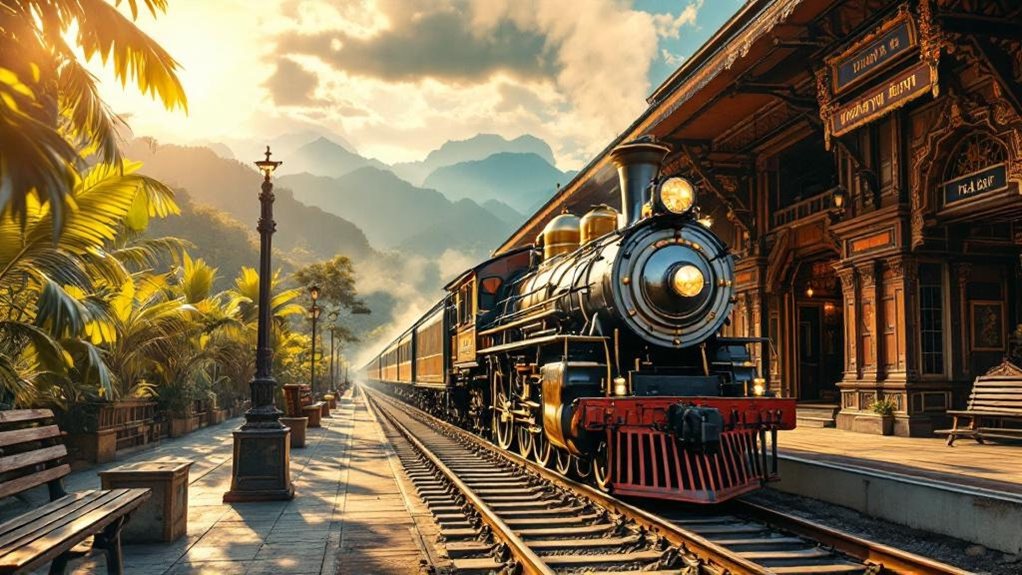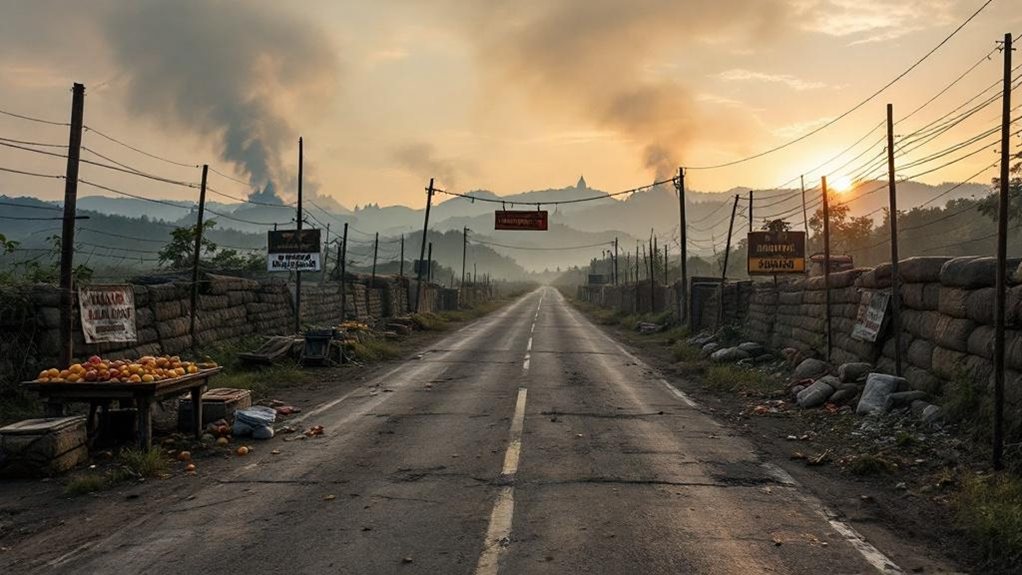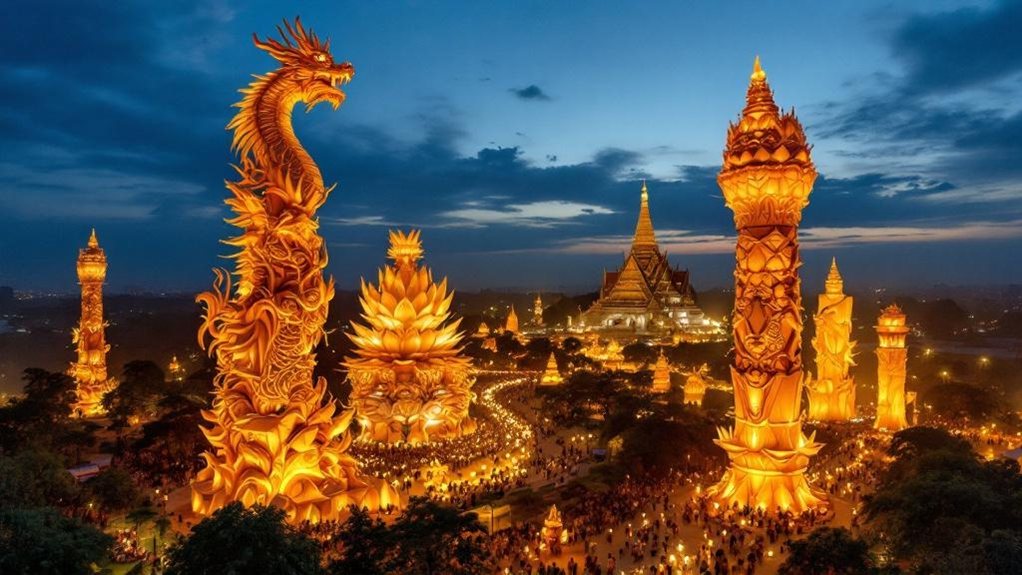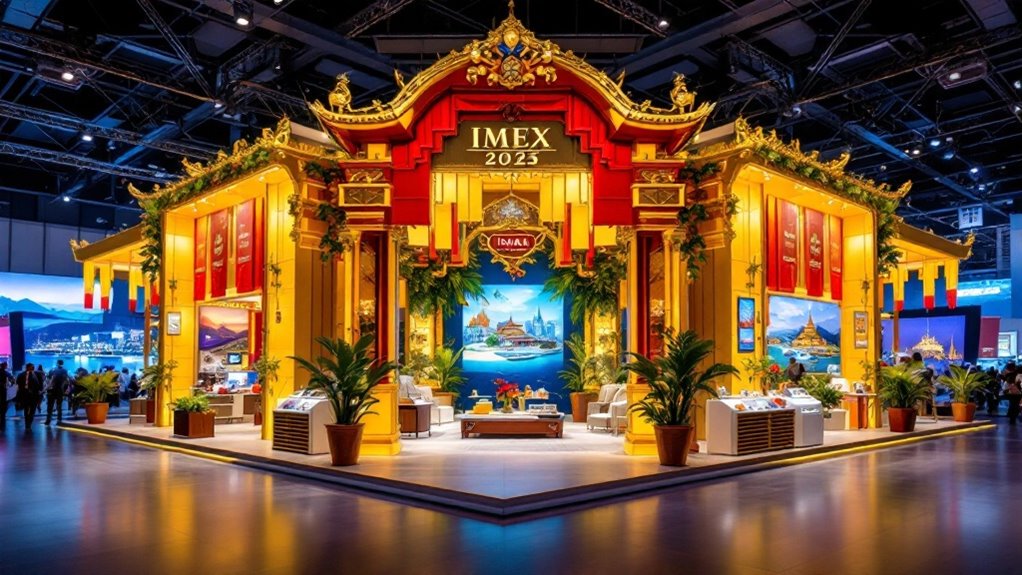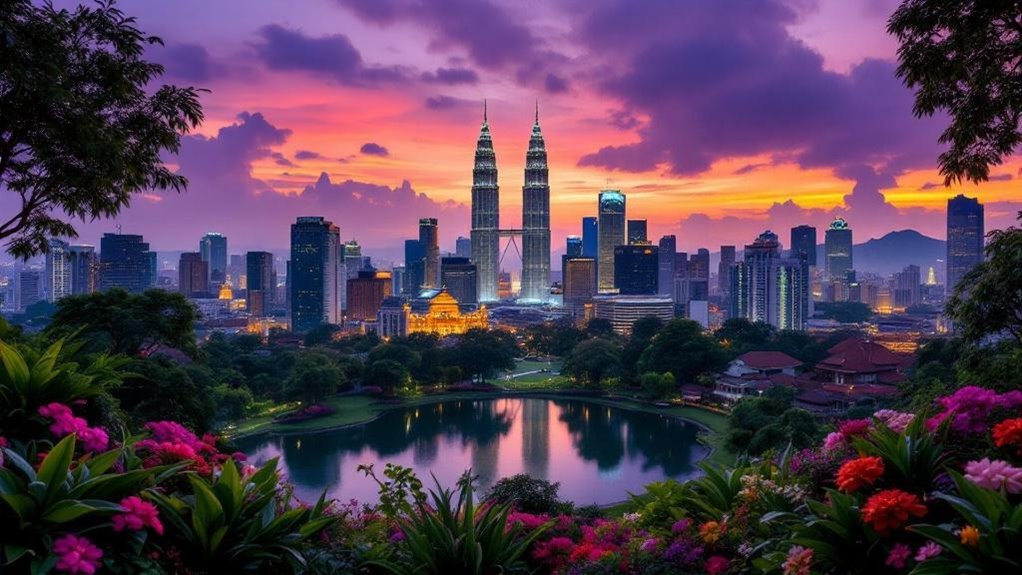Rail Tour Fans are gravitating toward the exclusive Thai Rail Tour Community due to its specialized focus on Thailand’s railway heritage. Abandoning generic train groups, enthusiasts are drawn to unique offers like access to historic rail sites established during King Chulalongkorn’s reign. This community emphasizes the strategic modernization role railways played in Thailand, providing immersive experiences that enhance understanding of the infrastructure’s historical and economic impact. There exists more to uncover about this compelling community.
The Thai Rail Tour Community serves as an important link between history enthusiasts and the rich heritage of Thailand’s railway system, which was established under the reign of King Chulalongkorn (Rama V) from 1868 to 1910. This community has emerged as a preferred choice for rail enthusiasts due to its dedication to preserving and promoting the intricate history of Thai railways. Unlike generic travel groups, the Thai Rail Tour Community offers an immersive experience, providing detailed knowledge and access to significant historical sites that shaped the nation’s railway network.
Connecting history enthusiasts with Thailand’s rich railway heritage under King Chulalongkorn’s transformative era.
Under King Chulalongkorn, the railway system was not merely a transportation initiative but a strategic tool for modernization and national sovereignty, aimed at countering colonial pressures from European powers. The development of railroads facilitated centralized government control and integration of remote provinces, particularly in northern and northeastern Thailand. Historical records indicate that King Chulalongkorn made the decision for independent railway construction, opting to hire Western experts while retaining control over the railway system. This strategic importance is a focal point for the Thai Rail Tour Community, which highlights such historical contexts during their tours, enriching participants’ understanding of the railway’s role in shaping modern Thailand.
While many historic railway stations have been lost due to inadequate management and a lack of conservation policies by the State Railway of Thailand, the community emphasizes the significance of preserving existing sites. Advocates like the Siam Society argue that protecting railway heritage can bolster local economies and foster civic pride. Many historic railway stations in Thailand, some dating back to 1880, face threats from commercial development, making preservation efforts all the more urgent.
The Thai Rail Tour Community aligns with this perspective by creating awareness and encouraging preservation efforts, thereby linking past infrastructure with future development potential. Economic impact, a significant aspect of Thailand’s railway history, is also explored within this community. Initially perceived as costly, railroads proved essential for political and administrative purposes, supporting agricultural development and facilitating resource movement across provinces.
